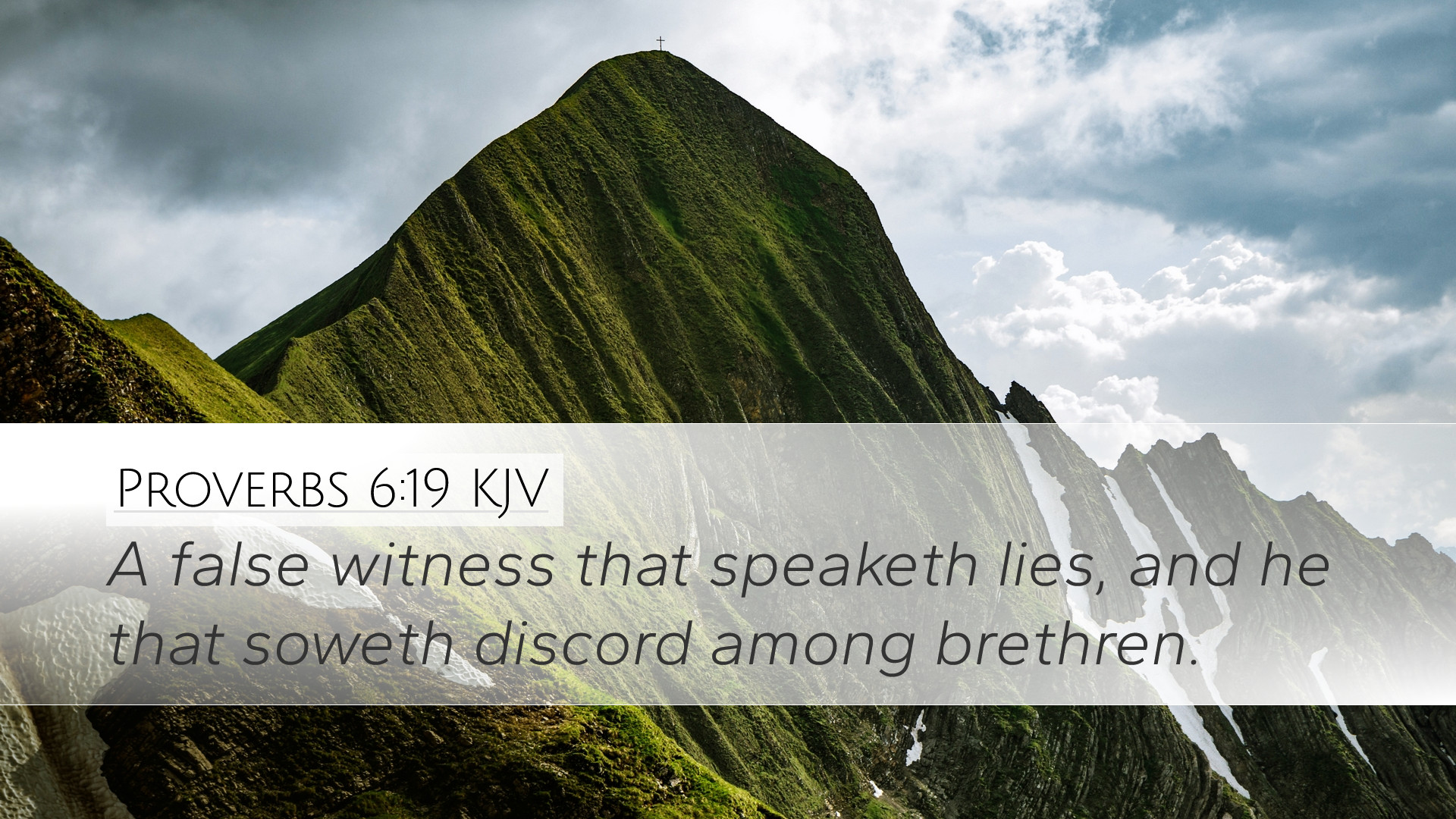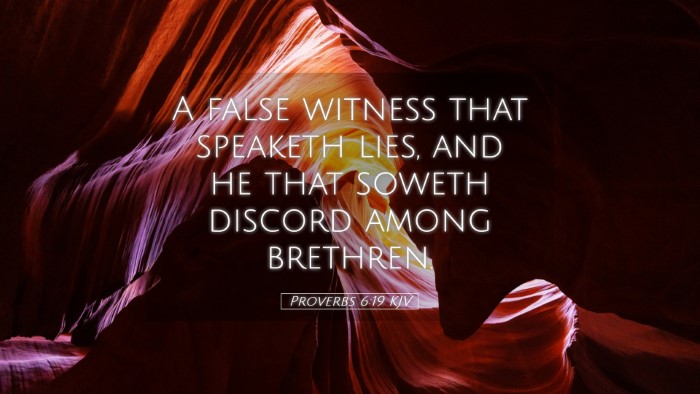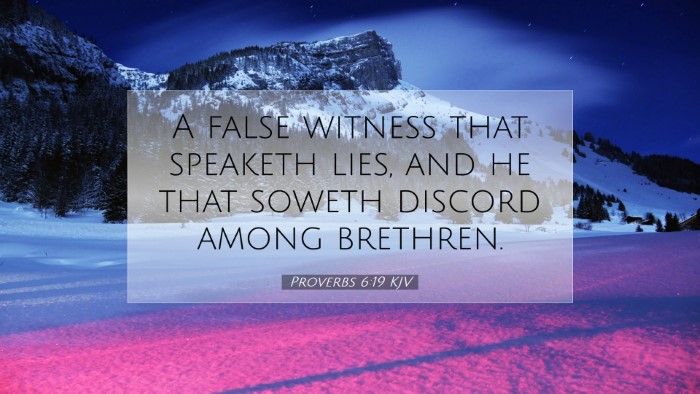Commentary on Proverbs 6:19
Proverbs 6:19 states: "A false witness that speaketh lies, and he that soweth discord among brethren." This verse is part of a larger context in which the writer warns against behaviors that are destructive to community and relationships. In this commentary, we will explore the significance of this verse through insights from Matthew Henry, Albert Barnes, and Adam Clarke, providing a platform for understanding its theological, moral, and practical implications.
Contextual Overview
The Book of Proverbs is primarily a collection of wise sayings meant to impart knowledge and moral guidance. This particular verse fits within a series of warnings against behaviors that the author considers wicked. In Proverbs 6:16-19, there is a list of seven things that the Lord hates, highlighting actions that lead to disharmony and destruction.
Insights from Matthew Henry
False Witness: Matthew Henry emphasizes the grave nature of bearing false witness, stating that this act is not merely a sin against individuals but also against the divine order. He points out that false testimony undermines justice and integrity within a community, leading to a ripple effect of mistrust and division.
Sowing Discord: Henry also discusses the notion of 'sowing discord among brethren'. He interprets this as a profound sin that disturbs the peace of relationships. Henry notes that creating division among brethren is particularly heinous as it directly contradicts Jesus' teaching on unity and love within the body of Christ. He draws upon examples from scripture where discord leads to devastating consequences, thus highlighting the necessity of maintaining harmony.
Insights from Albert Barnes
Significance of Witnessing: Albert Barnes casts light on the concept of a false witness in the context of societal function. He argues that testifying falsely disrupts the foundations of justice, and when justice is undermined, societal order crumbles. Barnes insists that believers must uphold truthfulness as a foundational virtue, particularly in their interactions with others.
Discord and Its Impact: In terms of sowing discord, Barnes notes that such actions lead not only to interpersonal strife but also to broader societal chaos. He links this idea to the New Testament, where Paul admonishes the community to be peacemakers, suggesting that discord sows seeds of strife that can lead to divisiveness, factionalism, and even greater sins. Barnes insists that reconciliation is a mandate for Christians and reminds readers of the imperative to seek peace actively.
Insights from Adam Clarke
Nature of Lies: Adam Clarke dives deeper into the nature of lies, explaining that they can often have far-reaching and unintended consequences. He emphasizes that lies not only damage individuals' reputations but also can destroy relationships that take years to build. Clarke urges readers to consider the source and motivation behind false testimonies, encouraging a conscientious approach to speech.
Community and Brotherhood: Clarke further elaborates on the 'brethren' mentioned in the verse. He highlights the biblical view of community as one that reflects the unity of the body of Christ. Acts that sow discord, therefore, are not just personal failings; they are attacks on the very fabric of Christian fellowship. Clarke underscores the importance of nurturing relationships within the church and society, as healthy communities are crucial for spiritual growth.
Theological Implications
This verse serves as a stark reminder of the importance of truth and unity in the Christian faith. Theologically, it emphasizes God's desire for His people to live in harmony and integrity. The implications of falsehood extend not only to individual character but also to the corporate witness of the church. When lies and discord manifest among believers, the church's testimony to the world is compromised.
Moral and Practical Applications
- Integrity in Speech: Believers are called to a higher standard of honesty. A commitment to truthfulness not only honors God but also fosters trust within communities.
- Promoting Unity: Actively working to promote peace and resolve conflicts is essential within any group. This may require humility, forgiveness, and a focus on reconciliation over being right.
- Awareness of Influence: Individuals must recognize the power of their words and actions. Engaging in gossip or spreading misinformation can have dire effects and lead to division.
Conclusion
Proverbs 6:19 encapsulates critical lessons about honesty and relational harmony that resonate deeply within Christian teachings. Insights from Matthew Henry, Albert Barnes, and Adam Clarke collectively highlight the significance of truth and the detrimental effects of false testimonies and discord. As followers of Christ, it is our duty to embody these virtues, promoting unity and integrity in all our interactions.


